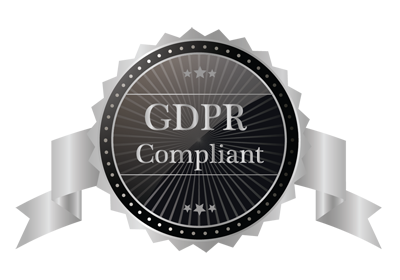Smart home devices have forever changed how we interact with our living spaces. From voice-activated assistants to intelligent thermostats, these innovations promise convenience, efficiency, and enhanced comfort.
However, as we embrace these benefits, we must also grapple with growing smart home privacy concerns. It’s a complex relationship. To help you understand the dichotomy, we dissect the risks, benefits, and strategies of protecting your personal information in your connected home environment.
What Are Smart Home Devices?
Smart home devices are Internet of Things (IoT) devices that automate and streamline various aspects of our home lives. These can include:
- Smart speakers (e.g., Amazon Echo, Google Home)
- Smart thermostats
- Smart doorbells, security cameras, and locks
- Smart TVs
- Smart appliances (refrigerators, washing machines, etc.)
- Smart lighting systems and power outlets
Users connect the devices to a home network and control them remotely via smartphone apps or voice commands. Smart devices offer numerous benefits, such as energy efficiency, convenience, and enhanced home security. However, they also introduce new privacy and cybersecurity concerns that homeowners must address.
How Do Smart Home Devices Collect and Use Data?
Smart home devices collect data from sources like:
- Voice recordings from smart speakers
- Video footage from security cameras and smart doorbells
- Energy usage patterns from smart thermostats
- Viewing habits from smart TVs
- Daily routines and habits inferred from various device interactions
The point of data collection is to provide personalised experiences for users. Your device should recommend features and services that suit you instead of a blanket customer base. So, the gathered data is used to improve functionality, develop new features, and analyse consumer behaviour for marketing. While this can enhance your experience, it also exposes sensitive details of your home life to manufacturers, third-party partners, and even potential hackers.
What Are the Main Privacy Concerns Associated with Smart Devices?
When it comes to data, privacy and security go hand-in-hand. The privacy issue with smart devices comes down to which data is collected, how it is used, and how manufacturers protect it. Bonus consideration: Did users give informed consent to all of this? The subsequent security issue revolves around the consequences of unprotected data.
Data Breaches and Unauthorised Access
Smart home devices and their cloud services are vulnerable to hacking. In turn, this can expose sensitive personal information.
Alternatively, hackers can gain control of cameras, locks, and other critical home systems. This gives intruders physical access to our homes.
Constant Surveillance and Data Sharing
The always-on nature of many devices means our actions and conversations can be continuously monitored. Additionally, user data is often shared with third parties for marketing purposes, sometimes without clear consent.
Lack of Transparency and Cross-Device Tracking
Privacy policies for smart devices are often complex. Because users struggle to understand the terms, they may inadvertently give “consent” to how their data is used. With more connected devices, there’s also a greater risk of profiling based on our behaviours and preferences.
How Can Hackers Exploit Smart Home Devices?
Cybercriminals target smart home devices due to weak security measures and the sensitive data they store. Hackers may exploit these devices in several ways:
- Take advantage of outdated or poorly secured device software.
- Use weak or default passwords to gain access
- Intercept sensitive information as it travels between devices and networks.
- Use malware to infect smart home hubs and gain control over multiple devices
- Launch Distributed Denial of Service (DDoS) attacks using compromised devices
- Exploit weaknesses in mobile apps or cloud services linked to smart devices.
These risks highlight the importance of strong passwords, regular software updates, and comprehensive security settings to protect your smart home.
What Steps Can You Take to Protect Your Privacy When Using Smart Home Devices?
While there are significant privacy risks associated with smart home devices, there are several steps you can take to mitigate these concerns:
1. Choose Secure and Privacy-Focused Devices
Before purchasing a smart home device, research the manufacturer’s privacy and security practices. Look for brands that offer strong encryption, regular updates, and transparent data policies.
2. Strengthen Your Home Network
Use strong, unique passwords for your Wi-Fi network. Consider setting up a separate network for smart devices. A VPN can also help encrypt your internet traffic and enhance privacy.
3. Update and Secure Your Devices
Regularly update your smart home devices with the latest security patches. Avoid default passwords and create unique credentials for each device and account. Enabling two-factor authentication adds extra security.
4. Adjust Privacy Settings and Device Placement
Review the privacy settings on your devices and limit data collection where possible. Be mindful of where you place cameras and microphones to reduce the risk of unintended recording.
5. Monitor and Manage Connected Devices
Periodically review all devices connected to your home network. Remove any that are no longer needed. Reading privacy policies can also help you understand how your data is collected and shared.
How Can Advanced Sweeping Help Protect Your Privacy?
While personal security measures are important, professional help enhances protection. Advanced Sweeping specialises in home bug sweeping to detect security risks in smart homes. Our experts use advanced tools to:
- Find vulnerabilities in your devices
- Uncover hidden surveillance threats
- Assess your home’s overall security
If you’re worried about the safety of your smart home, Advanced Sweeping offers discreet, professional solutions. Contact us today with any concerns.

